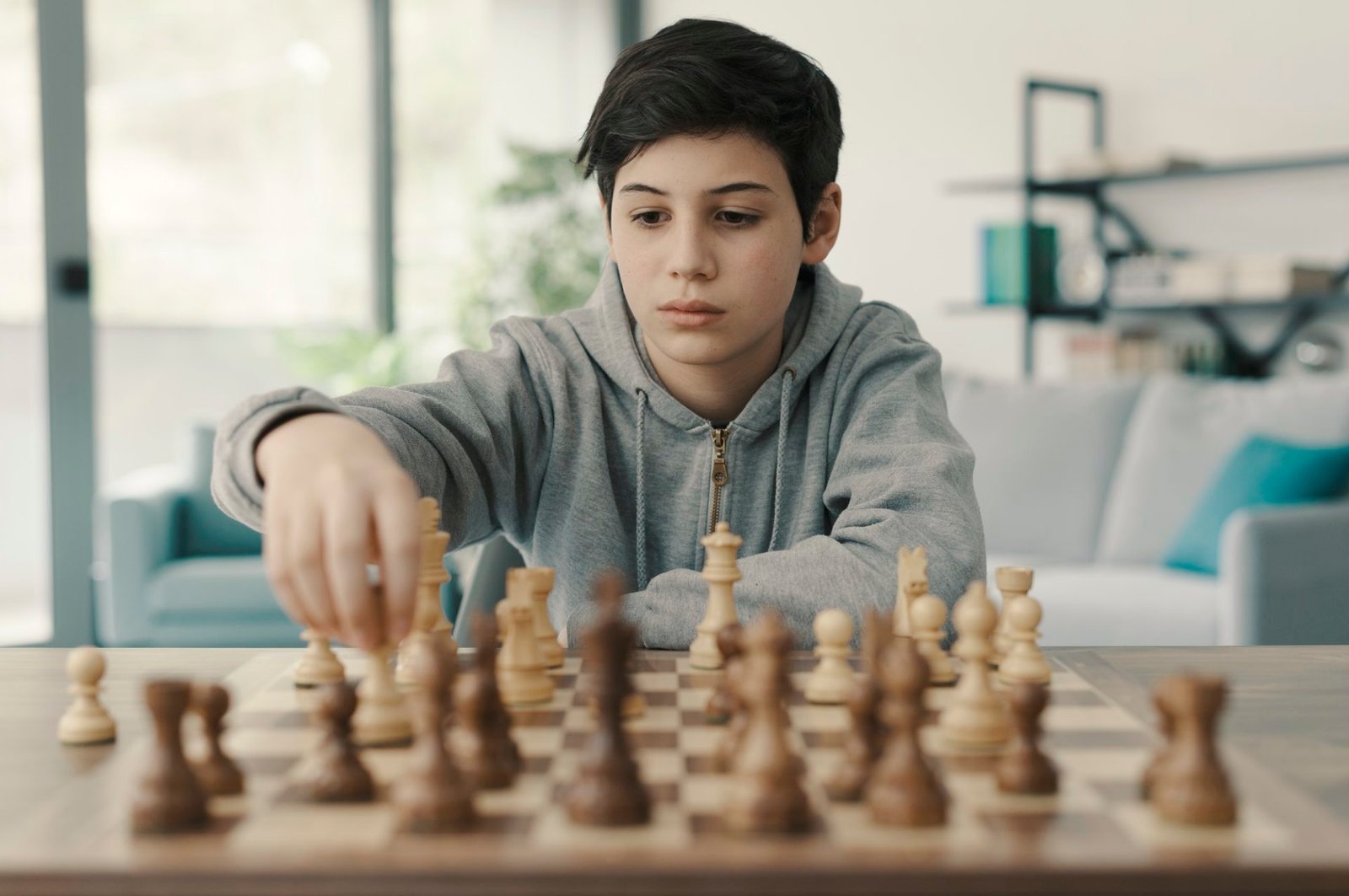Discover why chess is one of the most valuable skills children can learn for academic success, focus, and lifelong mental development.
Chess is more than a board game. For children, it is a gateway to intellectual growth, emotional balance, and future success. In this article, we explore the Top 10 reasons kids should learn chess, especially in today’s fast-paced digital world.
At Venture Chess Academy, we believe in nurturing young minds through structured learning, and chess is one of the most powerful tools available for that.
Chess Boosts Brain Development in Kids
One of the biggest benefits of chess is its direct impact on brain growth. Studies show that chess strengthens both the left (logical) and right (creative) hemispheres.
Chess for kids’ brain development improves memory, concentration, and abstract reasoning all critical in early education.
Whether solving puzzles or visualizing moves, chess stimulates neural pathways that improve thinking and learning speed.
Chess Improves Focus and Memory
A child who plays chess must think ahead and remember previous moves. This naturally strengthens concentration and short-term memory.
Does chess improve focus and memory in children?
Absolutely. Kids learn to ignore distractions and engage deeply with each move.
This mental training helps in academics, especially in subjects that require logic and sequencing like math and science.
Chess Encourages Academic Improvement
Chess and academic improvement go hand-in-hand. Students who learn chess often show better performance in school due to enhanced critical thinking and comprehension skills.
How does learning chess help children in school?
It teaches discipline, time management, problem-solving, and planning—skills used in exams and classwork.
Teachers worldwide are embracing chess as an academic enhancement tool.
Chess Builds Life Skills in Children
One of the lesser-known advantages of chess for school students is how it builds character and emotional intelligence.
Life skills taught by chess include patience, sportsmanship, strategic decision-making, and emotional resilience.
Even in losses, kids learn to bounce back, analyze mistakes, and improve—a skill for both school and life.
Chess Teaches Kids to Think Better
How chess helps kids think better is simple: it forces them to think before they act.
Unlike video games that encourage impulsivity, chess rewards calm, calculated decisions. This supports better classroom behavior and self-regulation.
Chess Encourages Mental Growth from an Early Age
Why should children start learning chess early?
Because early mental stimulation leads to stronger cognitive foundations.
Reasons to teach chess to kids early include better neural development, stronger memory, and improved focus. It’s easier to build these skills when the brain is still developing.
Chess Has Educational Value Beyond the Board
Chess is not just about kings and queens—it’s about the educational value of chess for children.
The purpose of learning chess in India is increasingly seen as a way to blend traditional learning with innovative thinking.
Parents and educators in India now prioritize chess alongside academics, seeing it as a holistic development tool.
Chess Promotes Cognitive Benefits in Students
Cognitive benefits of chess for students include improved analytical thinking, decision-making, and visualization skills.
By solving complex positions on the board, students learn to analyze real-life situations better. It’s a practical application of mental math and logic.
Chess Fosters Emotional and Social Development
Through friendly matches and tournaments, chess teaches children how to handle both victory and defeat.
Why chess is important for children’s mental growth lies in its ability to shape personality. Kids become more confident, calm, and composed.
Chess clubs also provide a platform for children to bond, make friends, and grow in a positive social setting.
Chess Creates a Lifelong Learning Habit
Benefits of playing chess regularly for young children include creating a mindset that loves learning.
Just like reading and writing, chess becomes a mental habit. It keeps young minds engaged, sharp, and continuously learning.
Types of chess (classical, rapid, blitz) also teach kids to adapt their strategy based on time and pressure, further enriching their learning style.
Conclusion
Why Kids Should Learn Chess
To sum it up, here are the Top 10 advantages of teaching chess to young kids:
- Brain development
- Improved focus and memory
- Academic growth
- Life skills
- Better decision-making
- Early mental development
- Educational value
- Cognitive strength
- Emotional resilience
- Lifelong learning
Why kids should learn chess is no longer a question it’s a necessity in today’s learning ecosystem.
At Venture Chess Academy, we have seen firsthand how chess transforms children’s lives. It is not just a game; it’s a growth mindset.
If you’re a parent or teacher, consider introducing your child to the world of chess early—and watch them flourish on and off the board.
FAQ:
Q1: What are the top benefits of chess for kids?
Improved memory, focus, academic performance, emotional control, and decision-making skills.
Q2: Does chess improve focus and memory in children?
Yes. Chess enhances cognitive skills like concentration and recall through consistent practice.
Q3: At what age should children start learning chess?
Ages 5–7 is ideal, but it’s never too late to start. Early exposure leads to stronger brain development.
Q4: Why is chess important for children’s mental growth?
Chess challenges the brain, helping develop logic, patience, and creativity—all key aspects of mental development.
Q5: How does learning chess help children in school?
Children who play chess show improved problem-solving skills, better focus in classrooms, and stronger academic results.

